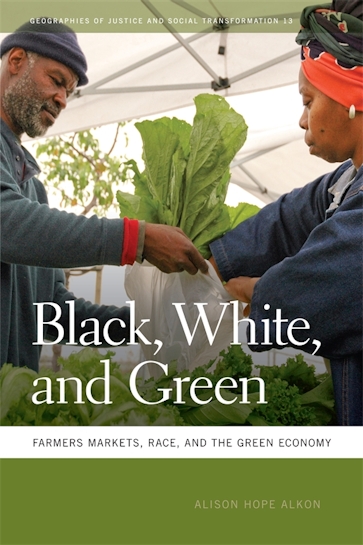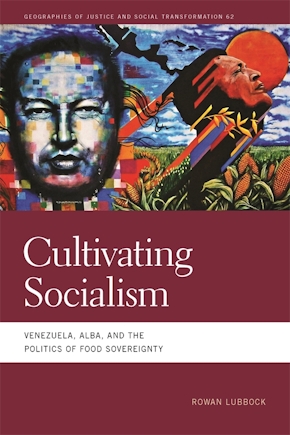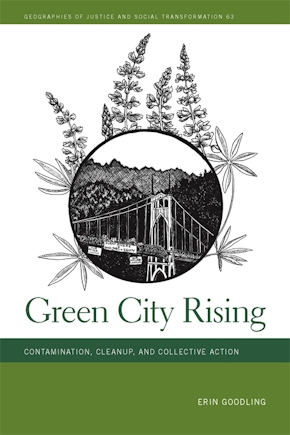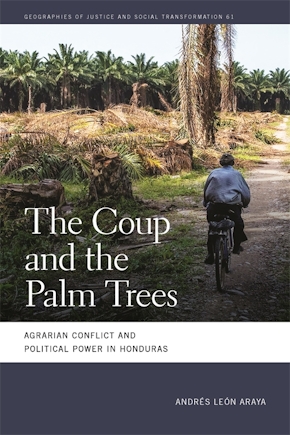Black, White, and Green
Farmers Markets, Race, and the Green Economy
Title Details
Pages: 224
Illustrations: 19 b&w photos
Trim size: 6.000in x 9.000in
Formats
Paperback
Pub Date: 11/01/2012
ISBN: 9-780-8203-4390-7
List Price: $27.95
Hardcover
Pub Date: 11/01/2012
ISBN: 9-780-8203-4389-1
List Price: $120.95
eBook
Pub Date: 11/01/2012
ISBN: 9-780-8203-4475-1
List Price: $27.95
Black, White, and Green
Farmers Markets, Race, and the Green Economy
Skip to
- Description
- Reviews
Farmers markets are much more than places to buy produce. According to advocates for sustainable food systems, they are also places to “vote with your fork” for environmental protection, vibrant communities, and strong local economies. Farmers markets have become essential to the movement for food-system reform and are a shining example of a growing green economy where consumers can shop their way to social change.
Black, White, and Green brings new energy to this topic by exploring dimensions of race and class as they relate to farmers markets and the green economy. With a focus on two Bay Area markets—one in the primarily white neighborhood of North Berkeley, and the other in largely black West Oakland—Alison Hope Alkon investigates the possibilities for social and environmental change embodied by farmers markets and the green economy.
Drawing on ethnographic and historical sources, Alkon describes the meanings that farmers market managers, vendors, and consumers attribute to the buying and selling of local organic food, and the ways that those meanings are raced and classed. She mobilizes this research to understand how the green economy fosters visions of social change that are compatible with economic growth while marginalizing those that are not.
Black, White, and Green is one of the first books to carefully theorize the green economy, to examine the racial dynamics of food politics, and to approach issues of food access from an environmental-justice perspective. In a practical sense, Alkon offers an empathetic critique of a newly popular strategy for social change, highlighting both its strengths and limitations.
Alkon’s deeply contextualized ethnography of two Bay Area farmers markets traces the transformation of local food and food justice movements from anticapitalist roots to neoliberal green growth agendas. Black, White, and Green is a must-read for those seeking to untangle the complexity of the ‘food movement’ and for those who believe we can buy and sell our way out of the environmental crisis.
—Kenneth A. Gould, City University of New York
Alkon provides readers with a strong sense of the dilemmas of the ‘green economy’ approach and with plenty of new knowledge about the strengths and weaknesses of local green economies and their (often hidden) dimensions of race and gender. Black, White, and Green is an excellent choice for classroom use in addition to having a more general appeal.
—Stella Capek, Hendrix College
Alkon’s timely study carefully highlights the strengths and weaknesses of farmers’ markets and, through them, the contradictions, compromises and exclusions inherent in the emerging green economy. Her rich historical and ethnographic study foregrounds food politics as a contested, deeply racialized, gendered, and class-based space in which meanings and messages, discourses and practices determine who participates. Only through an active cross-pollination of justice and sustainability, she argues, can a more just, inclusive green economy emerge.
—Julian Agyeman, Tufts University
Alison Hope Alkon investigates the possibilities for social and environmental change embodied by farmers markets and the green economy. . . . She mobilizes this research to understand how the green economy fosters visions of social change that are compatible with economic growth while marginalizing those that are not.
—Columns
[Alkon’s] ethnographic work at two [farmers] markets yields important insights about race, class, food access, social justice, and sustainability (economic, environmental, and cultural). Though her fieldwork is confined to the Bay Area, Alkon’s findings can and should be heeded by farmers markets and related ‘food justice’ programs across the nation, including the South.
—Sara Camp Arnold, Southern Register
Black, White, and Green provides a fine survey of the politics revolving around farmers markets produce, and discusses sustainable food systems, environmental concerns, community involvement and local economies in context of the evolution of such markets. . . . Any social issues collector will find this an intriguing study.
—Midwest Book Review
This text is often ethnographic, drawing from Alkon's lived experience and participant interviews. It challenges the way that visions of ethical consumerism and locavorism lead vendors and consumers alike to disregard inequalities.
—Book News
Alkon ends her book with a few examples of campaigns born out of the green economy that have tried to impact political issues, including recent urban-based Farm Bill advocacy, the growth of green jobs, and the prevention of farm animal cruelty. The author . . . reminds us that things can change—as long as we keep on asking ourselves who is producing our food, who is selling it, who is able to buy what and, ultimately, who gains.
—Fabio Parasecoli, Huff Post Green



